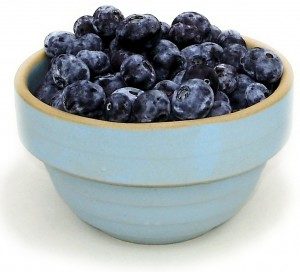Can Blueberries Help Postmenopausal Women with Bone Loss and Osteoporosis?

In an effort to find the best blueberry for the research, 1200 different kinds of blueberries were studied. Other fruits high in polyphenols and flavonoids were used in the studies: cranberries and the close Eurasian cousin of the blueberry, bilberries. A group of blueberries will be compared with each other, and then compared to the cranberries and bilberries. White blueberries will also be studied and close attention will be paid on whether the compounds possible for the purple color is a critical compound. The researchers will be also learning if all blueberries help, or just the ones with particular compounds. After two years of studies in animals, research in humans will begin, with focus on postmenopausal women.
Though the researchers cannot currently prove blueberry consumption is helpful, they are sure that it cannot be harmful. It is widely believed that blueberries are a natural wonder drug in curing, preventing, and even reversing certain ailments related to aging. The amount of blueberries produced and the demand for blueberries in this country is increasing every year not only because of the delicious taste associated with them, but more so because of the health benefits that are becoming more well known. The women in the study will consume about 12 ounces of berries each day, and researchers hope to see improvement resulting from the high level of antioxidants and healthy compounds found in the blueberries and the other berries used in the research.
Read more:

